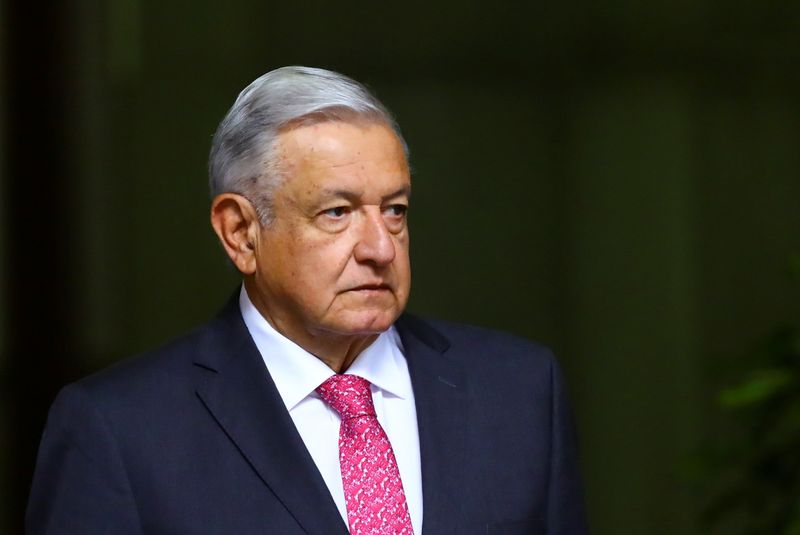MEXICO CITY (Reuters) – Mexican President Andres Manuel Lopez Obrador on Tuesday described as “shameful” reports of purported government-ordered cyber spying several years ago that may have targeted him and his close allies and said his government did not spy on anyone.
The Guardian newspaper reported on Monday that at least 50 people close to Lopez Obrador, among others, were potentially targeted by the previous administration of President Enrique Peña Nieto after it purchased Pegasus spying software from Israel-based NSO Group.
The Mexican Attorney General’s Office on Tuesday said it was planning to use some of the new information for its already-open investigation into spying on individuals using the Pegasus software.
“The (new) information is being incorporated into the already launched investigation,” the office said in a statement.
The Guardian’s reporting was based on what the newspaper and other media outlets have said was a leak of some 50,000 phone numbers that were selected for possible surveillance by NSO Group’s government clients.
The list, first accessed by the French nonprofit journalist outlet Forbidden Stories and advocacy group Amnesty International, was shared with The Guardian and more than a dozen other news outlets.
Reuters has not been able to independently confirm the existence of the data leak or whether the contract was still active.
NSO Group rejected the reports of a data leak.
Pegasus was exclusively sold to government clients around the world by the Israeli company. In 2017, Citizen Lab, a group of researchers based at the University of Toronto’s Munk School of Global Affairs, said targets included the phones of journalists, human rights activists and experts investigating the 2014 disappearance of 43 Mexican students.
Lopez Obrador has accused his predecessor’s government of being rife with corruption and abuses. He said on Tuesday that if the Pegasus contact was still active it must be canceled.
Mexico’s defense ministry and attorney general’s office were clients of NSO Group.
(Reporting by David Alire Garcia and Raul Cortes Fernandez; Editing by Gareth Jones and Grant McCool)






















